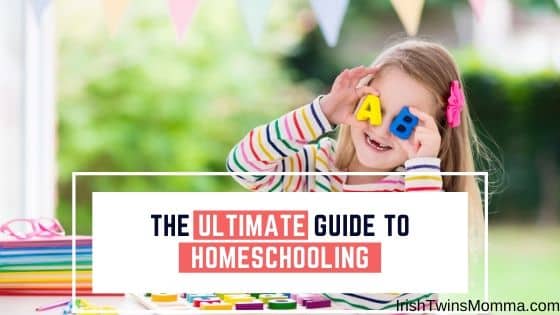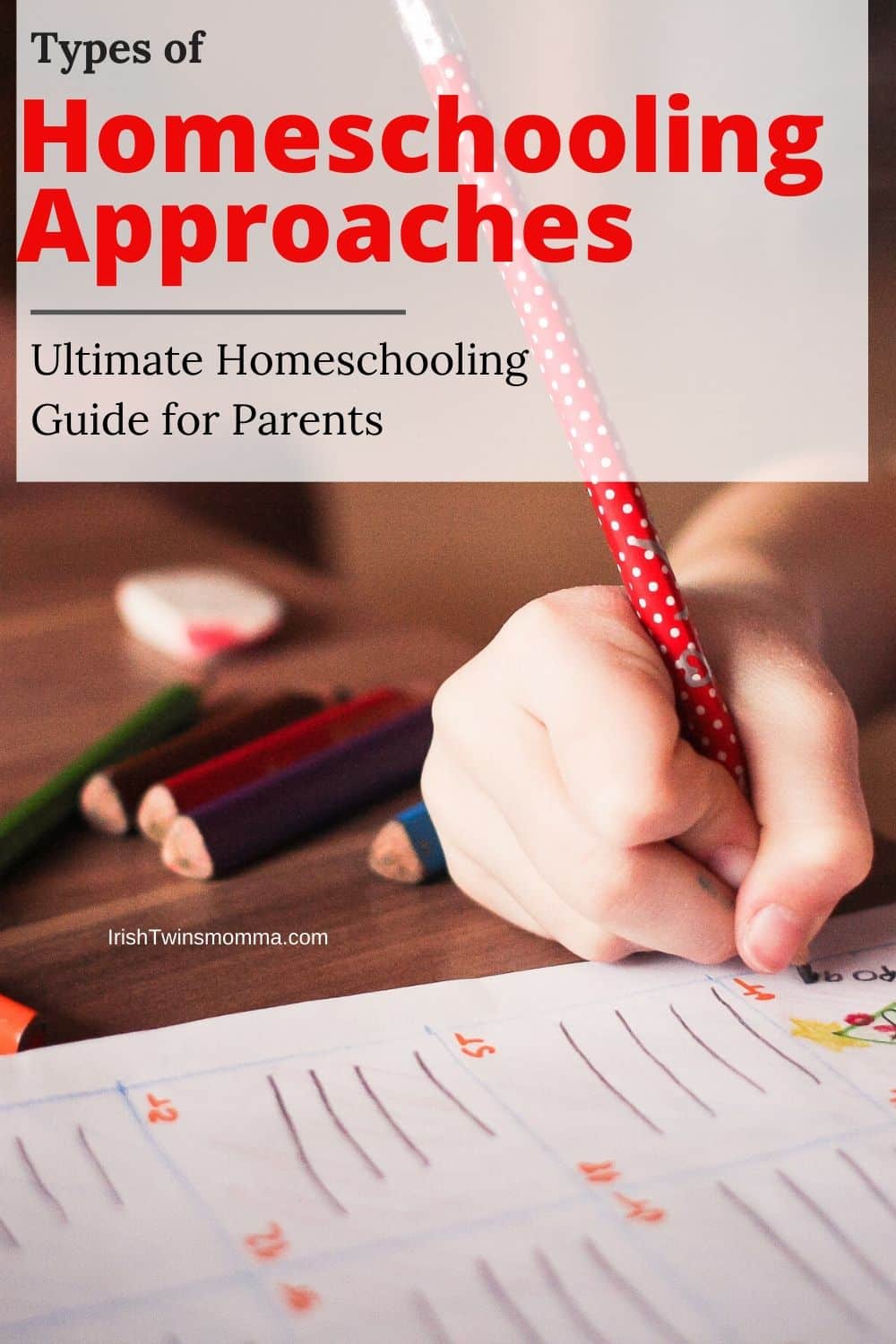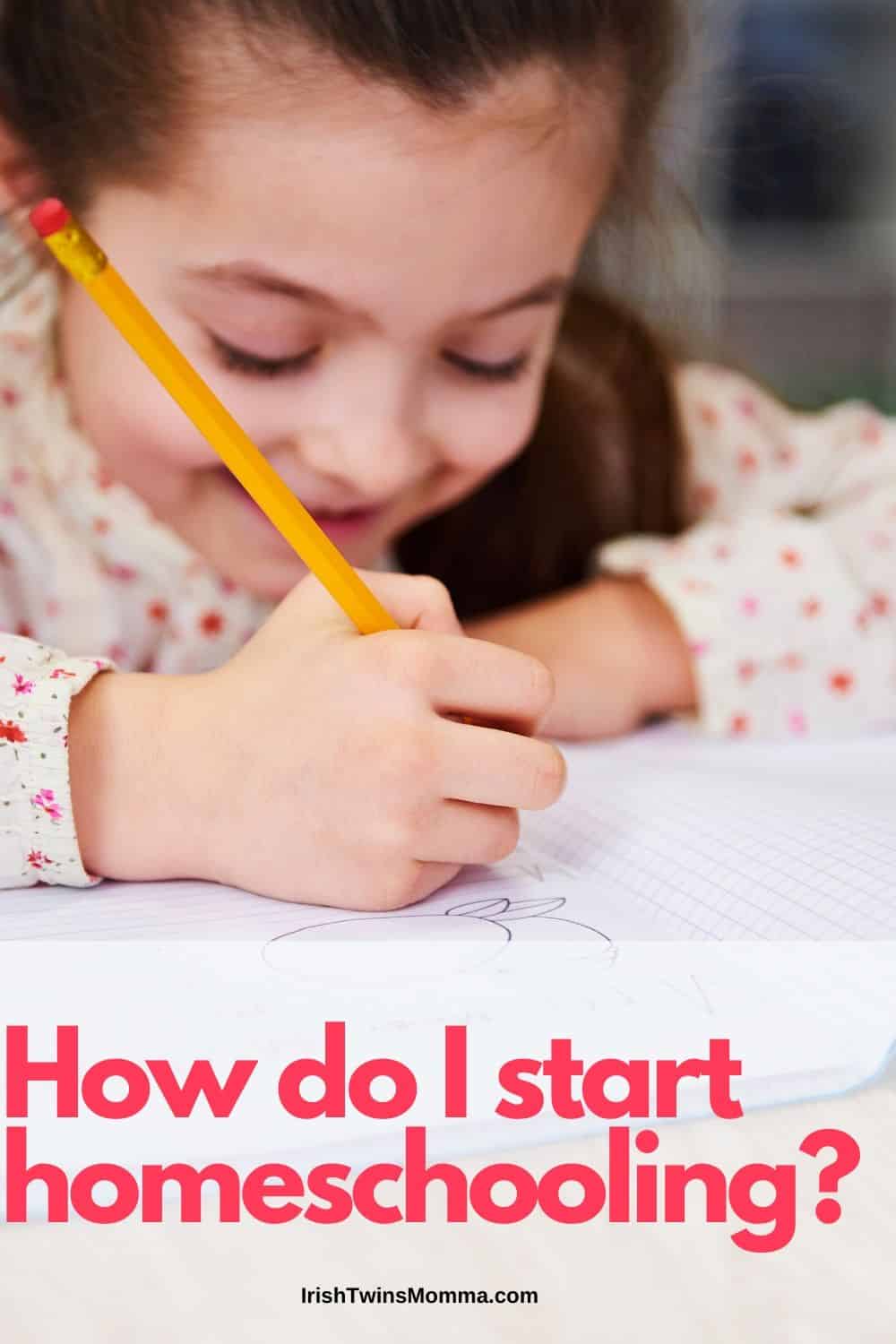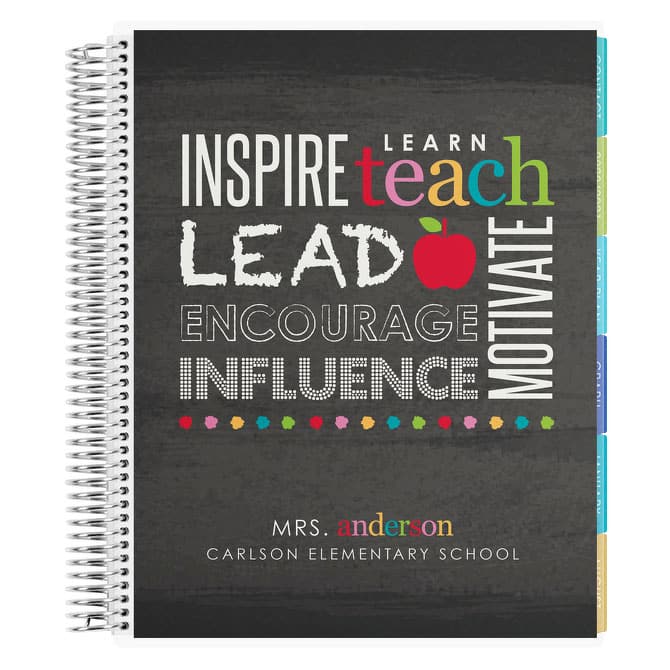This post contains affiliate links. If you click and buy, I may make a commission, at no cost to you. See my disclosure policy for more information.
 Being able to homeschool a child is a wonderful opportunity that has profound benefits for the teacher and the child.
Being able to homeschool a child is a wonderful opportunity that has profound benefits for the teacher and the child.
This guide shares what homeschooling is, the benefits of homeschooling, resources for homeschooling, and how to start homeschooling. Everything you need to know to get started and be successful.
What is homeschooling?
Homeschooling is that of a parent or educator educating a child within a home setting.
What are the benefits of homeschooling?
- A flexible schedule that allows the teacher to prioritize a child’s mental, emotional, behavioral, and physical health.
- Determine the curriculum and adjust accordingly to the child
- Create strong bonds with the child
- Adapt to various teaching methods best suited for the child to learn
- Spend extra time with the child on difficult concepts
- Provide religious and ethical instruction for their children
- Shelter children from school violence, drugs, and other behaviors
- The ability to spend extra time helping the child develop special talents (ex. musical, athletic, etc.)
- Discuss controversial topics
- Assist child during adolescence and other trying times
- Take the child on vacations and field trips while public school is in session.
- Allows for generous time for community activities, volunteering, and entrepreneurship
- A low student-teacher ratio that allows for more one on one time
- Meaningful learning isn’t based on just teaching to pass a state-mandated test that has minimum standards
- Accommodating special situations, including families that move a lot, illnesses, military families, and more
Other benefits of Homeschooling:
- Mental Health – The educator can make therapy, coping skills, and medical care a priority, which will then enable the academic growth they hope to see within the child.
- Social Development – Allows for a closer bond to be formed that helps build healthy social connections. The educator will stand out as a role model that can impart values, solve conflict positively, and coach behavior. It allows them to foster more profound independence and participate more in the community in which they live.
- Physical Health – The educator can prioritize sleeping and activity more into the child’s schedule. As well as manage illnesses with no busywork and less stress to allow time for healing, recovery, and coping.
- Particular Circumstances such as bullies, school-induced stress, and more.
Academic Benefits of Homeschooling:
- Custom tailed plan based on the child. This is extremely helpful for children who may be behind, gifted, or advanced, kids who have ADD/ADHD, and kids who have special needs.
- Choose what works for the child and the educator. You can choose your curriculum and resources, helping the child learn different subjects or from different viewpoints. It helps a child learn at a level they are ready for and not by an arbitrary grade level.
- In some states, parents can even set their graduation requirements, helping teens prepare for work, a creative life, or college with high school years that are tailed to the individual child.
- An efficient and effective learning method as there is a low student-teacher ratio. It results in saved time during the day waiting for others to finish.
- Focus on life skills, including learning to cook, cleaning, and more.
- Getting into further education, such as preparing their transcripts to stand out more due to the different experiences that allow them the opportunity to follow various interests that may not be touched on in public schooling.
Types of homeschooling approaches:
- Strength-based learning requires educators to engage in reflective practice It is best described as a continuous process that involves educators thinking about their own values and professional practice and how their values and practice impact on each child’s learning and development.
- Inquiry-based learning is an approach to learning that emphasizes the student’s role in the learning process. Rather than the teacher telling students what they need to know, students are encouraged to explore the material, ask questions, and share ideas.
- Interest-led learning is when letting a child’s interests lead the learning process. This means parents take note of what a child is curious about, enjoys doing, and is naturally drawn to. Then parents help a child learn about that interest.
How do I start homeschooling?
-
Research and connect with families already homeschooling.
The most significant way to be successful homeschooling is the support you can find within your community. Gone are the days when homeschoolers were few and far between.
Social media groups are a great option as well as, there are many homeschooling blogs by moms that all started from the same spot you are. (You will see some listed in the resources at the bottom)
-
Know the law
This is a critical step when you are starting to homeschool. If you know the law, you will have the confidence and know your rights as a parent.
-
Prepare your notice of intent
You will want to write a letter showing how you have complied with the law. You will need to choose one of the following options:
-
- Attach a copy of a high school diploma or transcript
- Attach your teacher certification (if you have one)
- Provide a program of study or a curriculum that may be delivered through a correspondence course or distance learning program or in any other manner (attach an acceptance letter or evidence of payment)
- Show proof that you can provide an adequate education for your child. (Carefully write a grammatically correct letter stating why you can provide a good education for your child)
Once the paperwork is submitted, you may begin homeschooling. *Make sure to keep all documentation proving that you have submitted what was required by law. Under option iv, the local superintendent has the responsibility to review the information you provide to determine if you can provide an adequate education.
As I was writing this, I learned so much that I think homeschooling can teach a child more than a public school.
What are the best homeschool supplies?
Homeschooling Planner:
Erin Condren is offering a special on the NEW 2020-2021 Teacher Lesson Planner Now Available For $55
Homeschooling Books:
Homeschooling Chalkboard and Chalkola Marker
Online Homeschooling Resources:
My favorite educational websites on the web:
ABCmouse for ages 2 to 8 years old
Adventure Academy for ages 8 to 13 years old
Do you want the top of the LINE? I recommend checking out Study.com, where you can personalize online homeschooling curriculum for your child from 3rd grade to 12th grade that has simple lesson planning, grading, and progress tracking to make you homeschooling experience a breeze!
Does your child just need some fun printables, inactive games, with some practice tests? They prepare you for some of the most important tests your child may need to take, including BRSA, AABL, CCAT, and more. Check out TestingMom.com for more details.
Homeschooling Blog Resources:
- Homeschooling Resources by Valorie Fowler
- Free ways for kids to learn from home by Emberly Starr at Mom Hacks 101
- How to start a homeschool preschool group by Audrey Wood at Two Pink Peonies
- Homeschool Pre-K Curriculum by Jennifer Tanney at Tadpoles and Mudpuddles
- Preschool at Home Resources by Christine Abrama at The Growing Creatives
- Homeschooling Board for Toddlers by Amanda Marie at Playful Kale
- Create a Good Study Space for Online Learning by Maria Airth at Study
I genuinely hope you this has been useful, and you are ready to start homeschooling. Please feel free to share your suggestions and more in the comments as it takes a village to raise the next generation.
Sincerely,







Leave a Reply